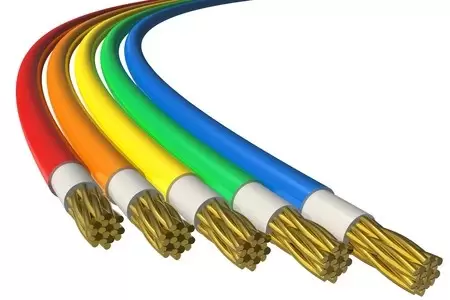Description/ Specification of LT PVC Cable / HT PVC Cable
PVC (Polyvinyl Chloride) cables are a ubiquitous and versatile type of electrical wiring commonly used in a wide range of applications. These cables are known for their durability, flexibility, and cost-effectiveness, making them a popular choice in both residential and industrial settings. PVC is a synthetic plastic material known for its excellent electrical insulating properties, making it ideal for carrying electrical currents safely. PVC cables come in various types, including insulated and sheathed versions for different purposes. They are used extensively in wiring for homes, offices, and industrial complexes due to their fire-resistant and chemical-resistant properties. The PVC sheathing provides protection against environmental factors like moisture, chemicals, and abrasion, ensuring a long lifespan for the cables. One of the significant advantages of PVC cables is their ease of installation. They are lightweight and flexible, allowing for convenient routing through tight spaces and around corners. Additionally, PVC cables are known for their low maintenance requirements, further adding to their appeal. However, it's worth noting that PVC is not suitable for all environments, as it can degrade when exposed to extreme heat. In such cases, specialized cables with heat-resistant sheathing materials may be necessary. Overall, PVC cables are a dependable choice for a wide array of electrical applications, combining affordability, durability, and ease of use.
LT PVC Cable / HT PVC Cable
PVC (Polyvinyl Chloride) cables are a ubiquitous and versatile type of electrical wiring commonly used in a wide range of applications. These cables are known for their durability, flexibility, and cost-effectiveness, making them a popular choice in both residential and industrial settings. PVC is a synthetic plastic material known for its excellent electrical insulating properties, making it ideal for carrying electrical currents safely. PVC cables come in various types, including insulated and sheathed versions for different purposes. They are used extensively in wiring for homes, offices, and industrial complexes due to their fire-resistant and chemical-resistant properties. The PVC sheathing provides protection against environmental factors like moisture, chemicals, and abrasion, ensuring a long lifespan for the cables. One of the significant advantages of PVC cables is their ease of installation. They are lightweight and flexible, allowing for convenient routing through tight spaces and around corners. Additionally, PVC cables are known for their low maintenance requirements, further adding to their appeal. However, it's worth noting that PVC is not suitable for all environments, as it can degrade when exposed to extreme heat. In such cases, specialized cables with heat-resistant sheathing materials may be necessary. Overall, PVC cables are a dependable choice for a wide array of electrical applications, combining affordability, durability, and ease of use.
